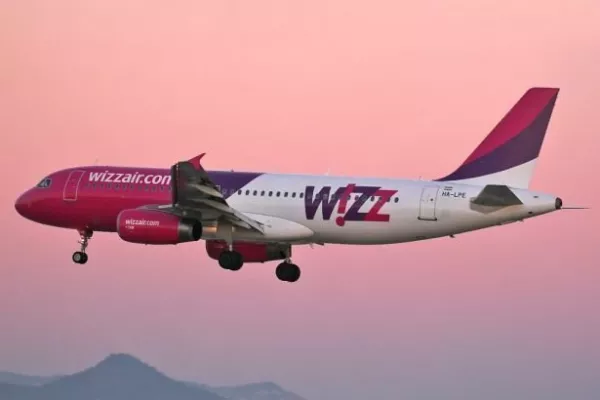Wizz Air will cut its flying plans for January because of new lockdowns in Britain, its chief executive, Jozsef Varadi, has said, adding that there is little visibility for the coming months but travel demand should return by summer.
The news follows news that Wizz Air competitor Ryanair has cut its annual traffic forecast by approximately five million passengers, also due to lockdowns.
During December, Varadi said that Wizz flew 35% of 2019's capacity. He forecast that the new lockdowns in the United Kingdom, which is one of Wizz's three biggest markets alongside Romania and Poland, will mean that capacity will fall to 25% in January.
Varadi, who co-founded Wizz in Hungary in 2003, said that Wizz's longer term growth story remains intact, and that the airline should bounce back.
"I think if restrictions get removed by summer, I would say that summer 2021 would not be far away from summer 2019 from our perspective," he said. "But you would not see that happening at many of the other airlines."
Since the pandemic struck, some larger airlines have scrambled to raise the funds to survive a period of almost no flying. EasyJet, British Airways and Lufthansa all plan to shrink.
But Wizz entered the crisis well-funded, like Ryanair, with which it vies for the title of Europe's lowest-cost airline.
Wizz said that its €1.6 billion in cash means that it can survive for two years even if all planes are grounded.
The pandemic is still a challenge. Wizz axed 1,000 staff and, during the six months that ended on September 30, sank to a loss of €145 million. The stock is down 13% over the last year.
Wizz spent the last five years expanding beyond its eastern European base across the United Kingdom and western Europe, and has continued to grow its fleet despite the pandemic.
Since last March, it has opened 260 new routes and 13 bases, including one at Gatwick, which is London's second biggest airport, where it is keen to expand.
Next week, it will head further east with the launch of Wizz Air Abu Dhabi, which will connect the Gulf region and Europe.
Wizz has also beefed up its board and management team. The former chief financial officer of Aer Lingus-owner International Airlines Group (IAG) joined the Wizz board in November and easyJet's former chief commercial officer is expected to join later this year.
While there is limited visibility on bookings for the next three to five months, summer bookings are "very encouraging", Varadi said.
"Clearly, people's expectations are that by summer, this is all going to be behind us," he said, citing vaccination programmes.
The arrival of the vaccine prompted Ryanair to forecast in November that the summer will be "very impressive", while easyJet has been more cautious.
Shareholder Vote Curbs To Meet Post-Brexit Rules
Viradi also said that stripping voting rights from the majority of his investors is a sustainable way to meet post-Brexit rules, even as a leading sector analyst said that it may not be enough unless there is a regulatory change.
Under European Union rules, EU airlines must be owned and controlled by nationals from the bloc or aligned European Economic Area (EEA) countries, or lose their licences.
UK investors were deemed non-EU from January 1, meaning that some airline groups must act to stay compliant.
Those most affected - Wizz, Ryanair easyJet and IAG - have restricted voting rights or introduced other measures, such as board changes, to try to meet the EU control requirement.
"Personally, I think this is a sustainable proposition," Varadi said when asked in an interview about the airline's decision to disenfanchise the owners of approximately 60% of its shares.
But HSBC analyst Andrew Lobbenberg said in a note that the issue is unresolved and forced share disposals or corporate restructurings may be needed without a subsequent deal to loosen ownership rules.
"These moves defend the idea of EU control, but leave EU ownership uncertain. We judge these moves to be temporary holding measures," he said.
Ryanair boss Michael O'Leary predicted late last year that Brexit could force a breakup of IAG.
The December post-Brexit EU-UK aviation deal does not allow flexible treatment of UK shareholders, although it acknowledges "potential benefits of the continued liberalisation of ownership and control" and pledges to review the rules this year.
Some airlines have expressed hope that a rule change will allow them to lift the share restrictions and still retain EU operating licences.
Without such a change, the current compliance efforts could face legal challenges from competitors.
Approximately 80% of Wizz Air shareholders are non-EU, but Varadi said that he expects some to be reclassified as EU investors over time as they transfer holdings between investment vehicles.
"Irrespective of disenfranchisement, we have an attractive stock to offer to the market no matter who the investor is," Varadi said.
News by Reuters, edited by Hospitality Ireland. Click subscribe to sign up for the Hospitality Ireland print edition.









